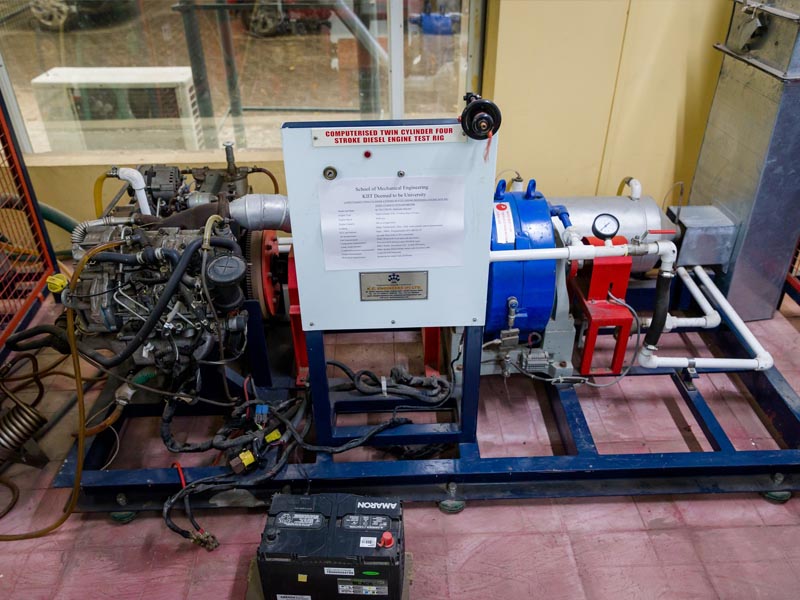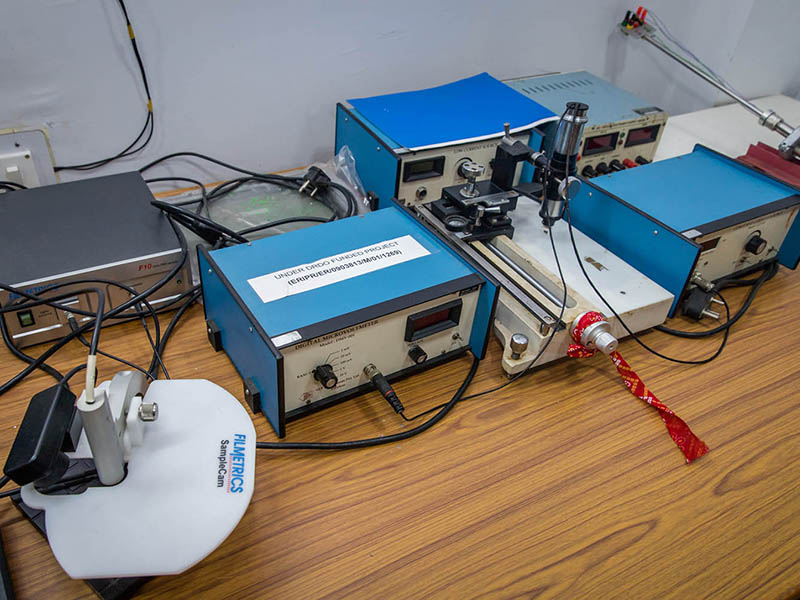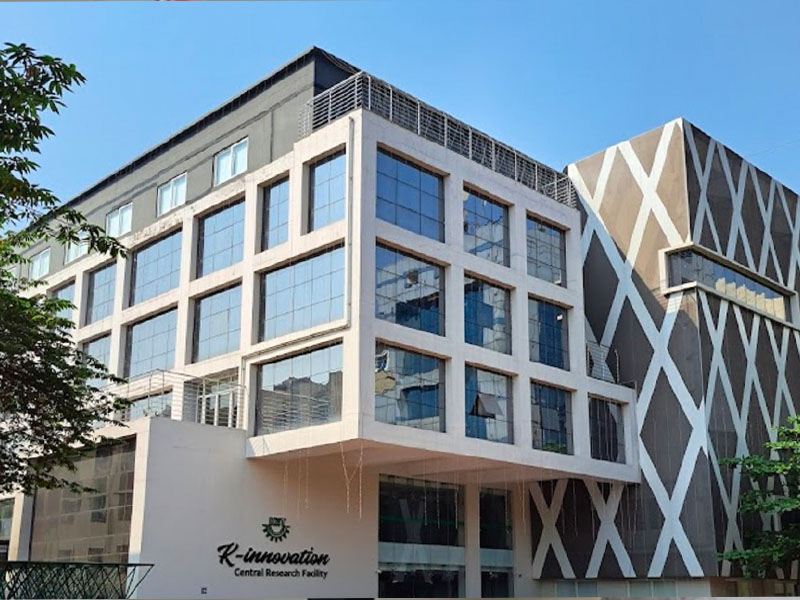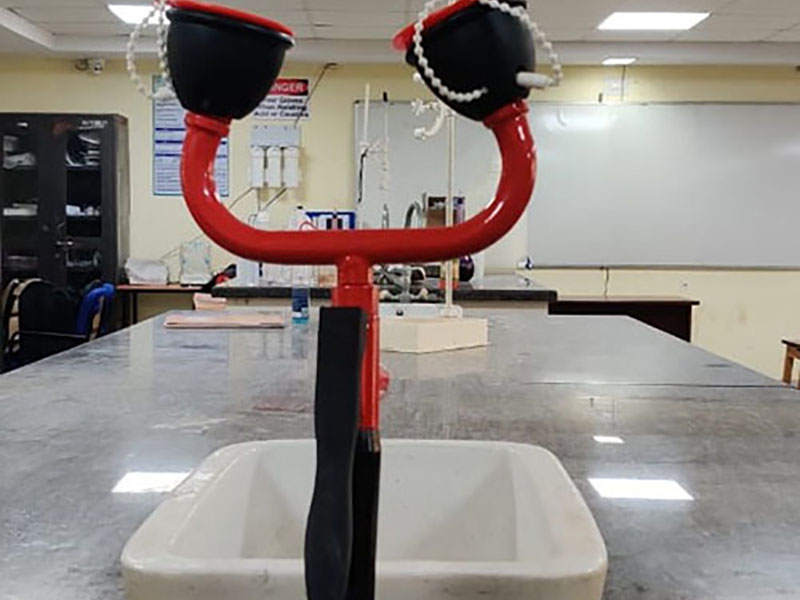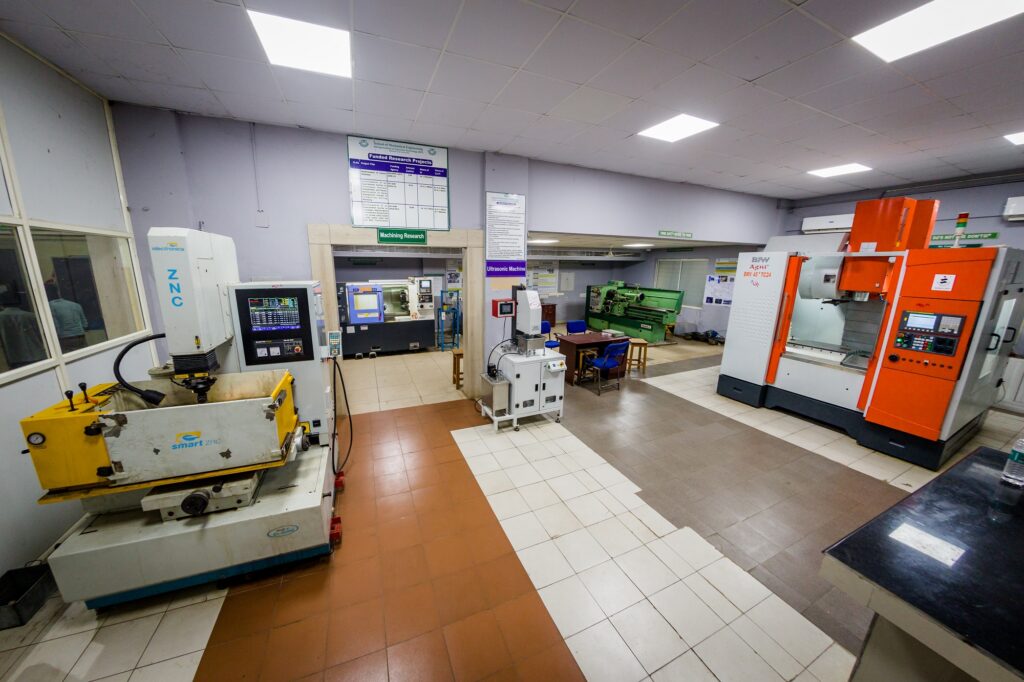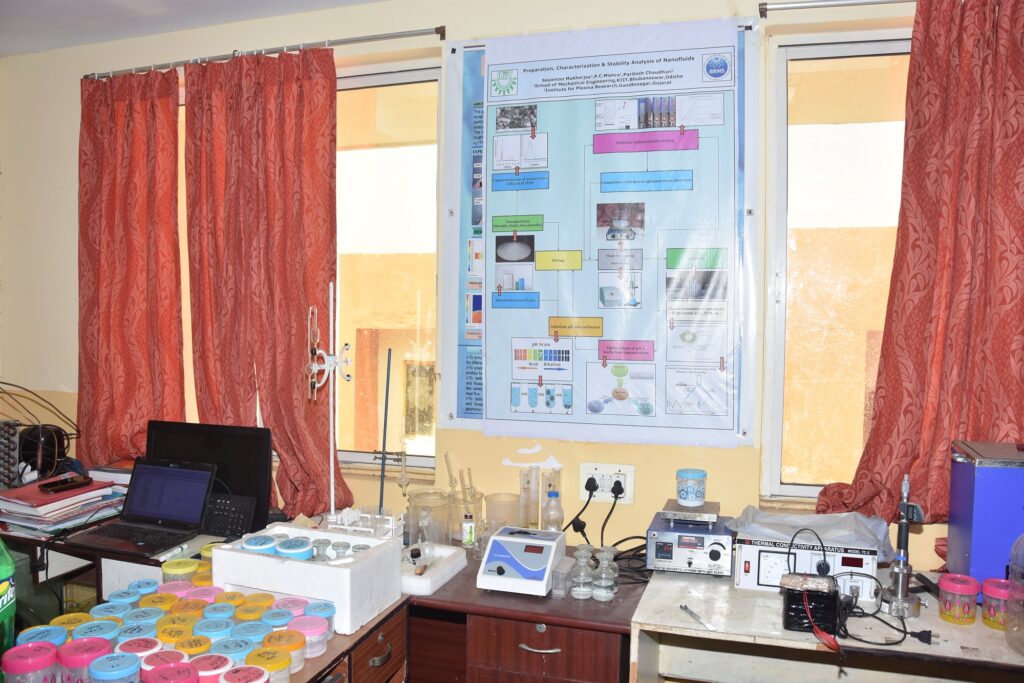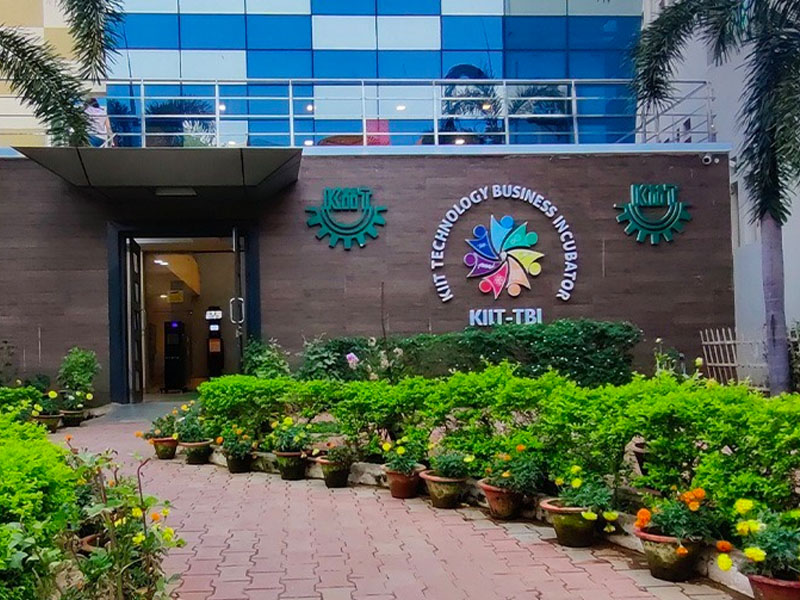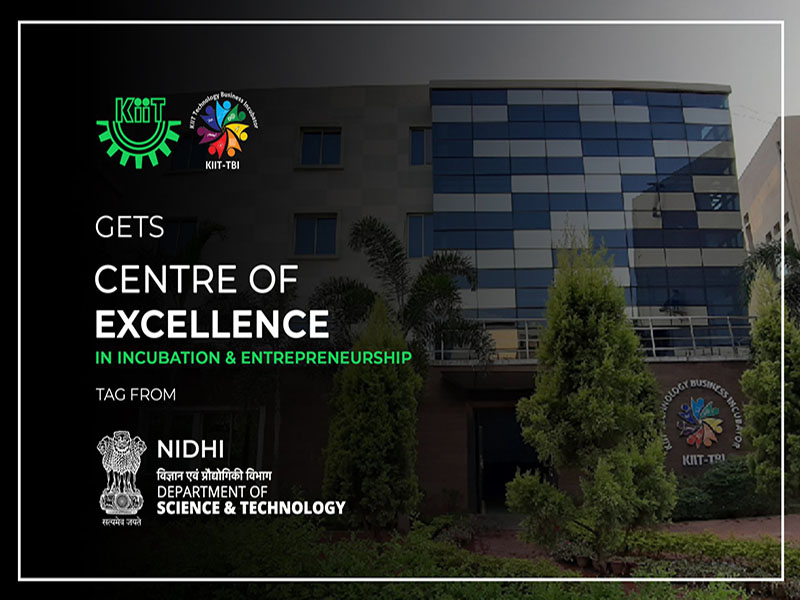Research Centres with a specific focus on environmental sustainability
As the world grapples with the escalating challenges of climate change, biodiversity loss, and environmental degradation, the need for dedicated efforts towards environmental sustainability has become more apparent than ever before. In this context, KIIT Deemed to be University has committed to conduct research on Environmental sustainability. The following research laboratories are working towards the environmental sustainability.These research laboratories also contribute towards the curriculum development , teaching and supervision of undergraduate and post-graduate programs.
This facility is catering to the research, testing and prototyping needs of new Electric & Hybrid
vehicle development. The centre provide the necessary support and ecosystem to students for fulfilling their dreams of working on cutting age technologies in frontier areas of electric and hybrid vehicles.
The broad Research areas are:
- Renewable Energy system: Energy harvesting, Fuel Cells and hydrogen forming, Photo Voltaic technologies, Thermoelectric energy, solar water-splitters.
- Renewable Fuels: Bio fuel and Hydrogen fuel Systems
- Combustion system: Performance and minimize pollution of combustion and propulsion systems, plasma-enhanced combustion of hydrocarbon fuels and development of a soot less diesel engine;
- Green transportation: Solar powered vehicle, Batteries and energy storage, Hybrid vehicles, Advanced and hybrid power trains, alternative fuels and combustion processes;
- Waste Management: Recycled materials, pyrolysis of waste
Green Engine Technology Centre is an outcome of research project sponsored by AICTE, New Delhi.
The testing & performance analysis of both Diesel & Petrol engines along with the analysis of CO,CO2, HC & NOx produced through different designed silencer.
The Thin Film Photovoltaics laboratory is dedicated to provide next-generation high- performance thin-film solar cells, sensors and optoelectronic devices and applications for affordable energy-sustainable future with the aim to provide impactful solutions for the benefit to industry and society. Currently, the demand for solar energy is gaining interest and a lot of research work is going on to provide cost- effective, environment-friendly thin-film solar cells. This lab supports a multipurpose and interdisciplinary working environment not only for the research but different collaborative activities also. The focus of this lab is to develop and characterize low-cost earth-abundant thin-film solar cells through efficient vacuum and non- vacuum-based technologies. In this lab, we continually strive to acquire and intelligently apply the resources to support the research community to advance in the PV field. Current activities of the laboratory cover a broad spectrum, ranging from fundamental research to industrial technology transfer.
Central Advanced Research Centre has been established in 1.5 lakh sq. ft. built up area with sophisticated equipment for advanced research including the research on environmental sustainability.
The Environmental Engineering Laboratory provides excellent state of the art facilities for teaching and research. The laboratory facilities are capable of analyzing the physical and chemical properties of contaminants including water, wastewater and air. Major equipment in the laboratory include; BOD Incubator, Chemical Oxygen Demand (COD) Test Apparatus, Nephlometric Turbidimeter, Dissolved Oxygen Meter, Sound Level Meter, UV Visible Spectrophotometer, Water Analysis Testing Kit, Centrifuge, Peristaltic Pump, Fine Sampler and Respirable Dust coupled with Gaseous Sampler, Digital Water Bath, Hot Air Oven, Muffle Furnace, Magnetic stirrer, Orbital Shaking Incubator and Ultrapure Water Unit.
The Environmental Engineering Laboratory provides excellent state of the art facilities for teaching and research. The laboratory facilities are capable of analyzing the physical and chemical properties of contaminants including water, wastewater and air. Major equipment in the laboratory include; BOD Incubator, Chemical Oxygen Demand (COD) Test Apparatus, Nephlometric Turbidimeter, Dissolved Oxygen Meter, Sound Level Meter, UV Visible Spectrophotometer, Water Analysis Testing Kit, Centrifuge, Peristaltic Pump, Fine Sampler and Respirable Dust coupled with Gaseous Sampler, Digital Water Bath, Hot Air Oven, Muffle Furnace, Magnetic stirrer, Orbital Shaking Incubator and Ultrapure Water Unit.
Advanced Manufacturing Processes (AMP) laboratory is dedicated to providing cutting-edge facilities that attract the future manufacturing workforce to develop next-generation products. Currently, the demand for manufacturing in the industries entirely relies on the way the world is doing business, global competition, rapidly changing environment, precise and high-quality products. This lab supports a multipurpose and interdisciplinary working environment not only for the training but also for research-related activities. The focus of this lab is to develop indigenous products through efficient unconventional manufacturing processes as well as providing system-level manufacturing solutions. In this lab, we continually strive to acquire and intelligently apply the resources to support the industries to advance in the manufacturing field. We innovate and work to bridge the gaps in advanced manufacturing research. We have state-of-the-art facilities specifically dedicated to the R&D needs of manufacturers, and the other facilities which have the flexibility to adapt to those needs. The lab also supports the educational needs of evolving technology in the conventional manufacturing sector.
Thermal Research Laboratory (TRL) provides research platform to carry out industry specific research. The research in Thermal Research Laboratory (TRL) is concerned with questions related to industrial applications. Using a combined approach of theoretical analysis, numerical calculations and experimental investigations, TRL aims to develop new or advanced knowledge for application in industrial design. Priority is given to the efficient use of energy and the minimization of the environmental impact of our future energy systems. Thrust areas include thermal conversion process, Impingement heat transfer process, Combustion dynamics, Nanofluid heat transfer.
KIIT- Technology Business Incubator (KIIT- TBI)
KIIT-Technology Business Incubator (KIIT-TBI), an initiative of KIIT supported by Department of Science & Technology (DST), Govt. of India, offers incubation facilities and enables the incubatees to work in a secure, innovative and entrepreneurial environment as they progress through various stages of entrepreneurial development. KIIT-TBI is networked with all TBIs in the country through various networks like ISBA through which it is further networked with AABI (Asia Pacific), European UKBI and US NBIA. It is also a member of Asia Pacific Incubator Network (APIN). The current focus of the Incubator is in the area of Pharma- biotech, Bioinformatics, Exploitive Micro-biology, Agri-tech & Information technology, robotics and other Electronics and Engineering based technology – with a mandate to make the technology available to the civil society and the marginalised sections in the shortest time.
Several Centers of Excellence have been established in the University with technical or knowledge support from various industrial/corporate sectors as well as research organizations like National Instruments, SAP, IBM corporation, Texas Instruments, Siemens, Bosch, Schneider Electric, Mercedez Benz, Tech Mahindra, Berufsgnossenschft-Der Bauwirtschaft,
Germany, Intel, Boeing India, Department of Science and Technology, Indian Space Research Organization, Ministry of Micro, Small and Medium Enterprises, Biotechnology Industry Research Assistance Council. All these centers were involved in research revolving around various sustainable development goals (SDGs) and product innovations.


